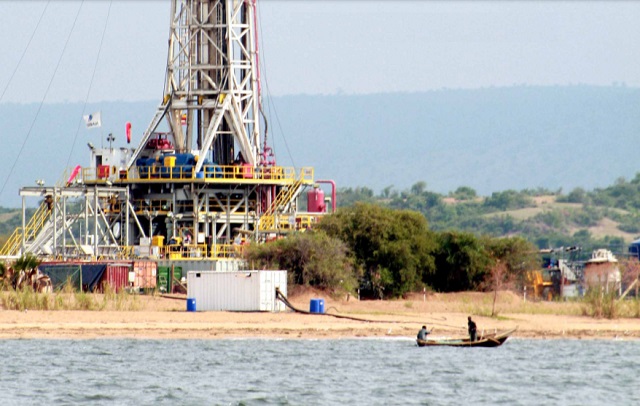
Kampala, Uganda | THE INDEPENDENT | With the global oil prices trading cheaper than a bottle of mineral water, analysts are saying it raises severe questions on the ability for Uganda to have its oil out of the ground any time soon.
On Monday, April 20, 2020, a barrel of oil traded at negative for the first time ever which means producers were paying consumers to take it. This was for the type called the Western Texas Intermediate (WTI). The global Brent oil is trading at USD 20 (75,000 Shillings), a barrel which is equivalent to 159 litres of oil. Government has said Uganda’s oil will be business sense when it sells at USD 50, a barrel.
Dennis Kakembo, a partner at Cristal Advocates, a law firm that analyses trends in the oil sector said if the oil prices remain significantly below USD 50 a barrel, it would not make business sense for companies to invest in Uganda’s sector. It is likely to delay Uganda’s projects as investors wait to be certain of the future.
The coronavirus crisis has grounded all travel including airlines and cars. Also, many countries have suspended business meaning factories that would run on fuel are not working. This has significantly collapsed oil consumption creating a glut in the world. In the United States, producers have nowhere to store the oil prompting a negative value on the resource.
Gilbert Alex, a global oil trends analyst said “It is going to be a very difficult investment environment for oil for atleast the next 6-12 months and possibly longer. Oil is losing tens of billions of dollars and many companies will go bankrupt.”
He added that “There will be a large storage overhang limiting the recovery of prices. It is possible that prices rebound strongly in a couple of years but until then financing may be difficult.”
Daniel Mushabe, an executive at an oil retailing company, said “prices are collapsing because there is no demand. Maybe by the time Uganda goes commercial, things will have changed”.
Bank of Uganda has previously said that the low global oil price outlook places severe question marks over the speed with which Uganda’s oil resources can now be developed especially given that the country’s proven oil reserves are waxy which increases the cost of moving them to the coast.
Another issue is that as oil prices plunge, banks that usually give loans to oil companies to invest may not be willing to do so because of the uncertainty.
Kakembo said Uganda has failed to grab the moments that would have pushed the country to produce oil faster. He said for instance that if Uganda had closed the Final Investment Decision (FDI), the commercial agreement that helps oil companies spend their money, the fall in prices would have found Uganda’s key projects already on the way.
On the positive side, Kakembo said, when the prices are low, some of the inputs needed to put up oil infrastructure are also lower. This, he said, means Uganda can capitalize on it to invest in the sector now.
Failure to produce oil in the next three years has dire implications for Uganda. BoU has said if the country doesn’t export oil by 2023, it might be hard for it to afford to pay back its debts.
On the current pump prices, the current low global prices may take a while to filter through. This is because many sellers still have the old stock.
Uganda has discovered 6.5 billion barrels of oil and between 1.4 and 1.7 billion barrels are commercially viable. Uganda has missed all previous production target dates.
*****
URN
 The Independent Uganda: You get the Truth we Pay the Price
The Independent Uganda: You get the Truth we Pay the Price



I would say build a refinery and use the oil for domestic consumption ( though imported oil may still be cheaper than local oil without tariffs)
With the EU in a green deal plan, the only hope for oil is if Trump wins in November, aside from that with developed countries going green. Uganda may be stuck with worthless oil.
There is time still to make a Plan B. Uganda has the smart minds to adjust accordingly for every “what if” scenario